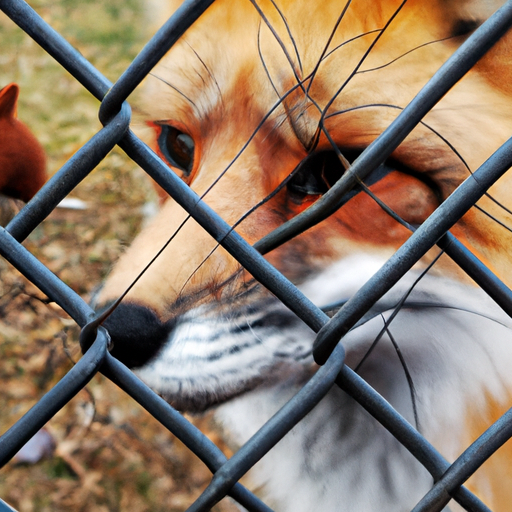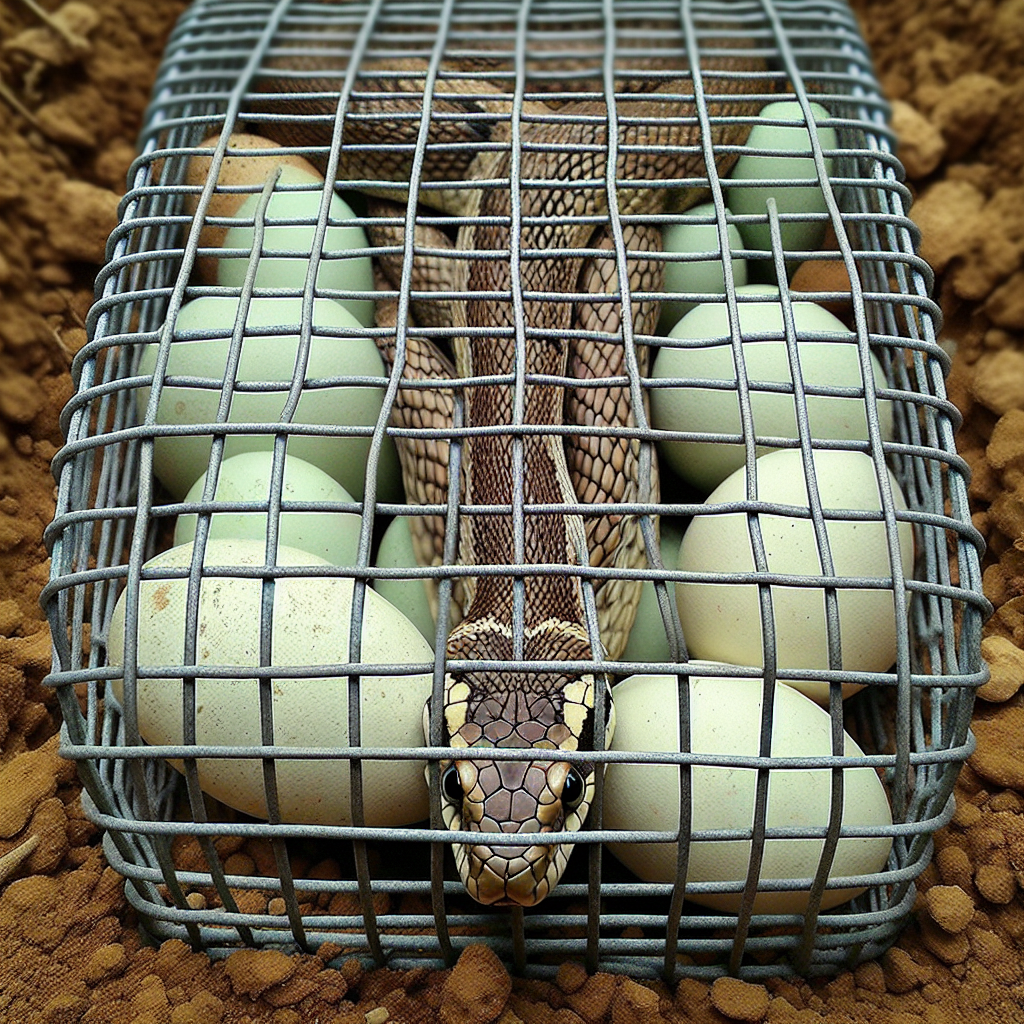Imagine a peaceful morning on your backyard farm, with your beloved chickens happily pecking and scratching the earth. But wait, what’s that rustling in the bushes? It’s a predator, eyeing your precious flock. Don’t fret, for there is a solution that is both effective and environmentally friendly. By harnessing the power of natural deterrents, you can create a protective shield around your cherished chickens, ensuring their safety and your peace of mind. In this article, we will explore a range of ingenious methods to keep unwanted visitors at bay, so you can focus on the joys of raising your feathered friends.
Identifying Common Predators
Knowing the Local Wildlife
To effectively protect your chickens from predators, it is crucial to first have a good understanding of the local wildlife in your area. Research and familiarize yourself with the common predators that may pose a threat to your coop, such as foxes, raccoons, coyotes, and hawks. By knowing the characteristics and habits of these animals, you can better prepare yourself for deterring them.
Common Predators of Chickens
While the specific predators can vary depending on your location, there are several common predators that frequently target chickens. Foxes are notorious for their ability to prey on chickens, as they are agile and cunning. Raccoons, with their dexterous paws, can easily open chicken coop doors or latch mechanisms. Coyotes are highly adaptable and can pose a serious threat to your flock, especially in rural areas. Birds of prey, such as hawks and owls, also pose a significant risk, particularly to smaller breed chickens. By being aware of these predators, you can take appropriate measures to safeguard your chickens.
Understanding Predator Behavior
Understanding the behavior of predators is essential in devising effective deterrent strategies. Predators are motivated by their need for food and shelter, so they will be attracted to easy prey and accessible coops. They are often most active during dawn and dusk. By understanding their patterns and tendencies, you can better anticipate their actions and implement appropriate precautions to protect your chickens.
Creating a Safe Environment
Building a Secure Coop
Building a secure and predator-proof coop is the foundation of protecting your chickens. Ensure that the coop is made of sturdy materials such as heavy-duty wire mesh or hardware cloth to prevent predators from gaining access. Reinforce potential weak points, such as doors and windows, with additional locks or bolts. It is important to regularly inspect the coop for any signs of wear or damage and promptly repair them to maintain its security.
Installing a Sturdy Fence
An effective way to create a safe environment for your chickens is by installing a strong and sturdy fence around their roaming area. Use materials such as welded wire or electric fencing to deter predators from entering the designated space. Ensure that the fence is buried at least a foot deep to prevent predators from digging their way in. Regularly inspect the fence for any damage or gaps and repair them promptly.
Regular Maintenance and Inspections
Maintaining and regularly inspecting both the coop and the fence are crucial steps in keeping predators at bay. Conduct routine checks for any signs of wear, damage, or weak spots in the coop, such as loose wires or holes in the walls. Similarly, inspect the fence for any signs of wear, damage, or potential entry points that predators could exploit. By addressing these issues promptly, you can proactively prevent predators from infiltrating your chicken’s living space.
Using Visual Deterrents
Scarecrows and Dolls
Visual deterrents can be an effective way to discourage predators from approaching your chickens. Scarecrows and realistic-looking dolls can create the illusion of a human presence, deterring predators that are wary of human interaction. Place them strategically around your coop and chicken run to create an atmosphere that predators find intimidating.
Reflective Objects
Predators can be startled or frightened by the reflection of light. Hanging CDs, shiny wind chimes, or mirrors around the coop area can create a visual deterrent by reflecting light and creating movement. This can confuse and discourage predators from approaching, as they may mistake the reflections for human or animal presence.
Motion-activated Lights
Motion-activated lights can be an effective deterrent, especially for nocturnal predators. Install these lights around the perimeter of your chicken coop and chicken run. When a predator approaches, the sudden illumination can startle and discourage them from getting any closer. This can be particularly effective for deterring predators that rely on the cover of darkness.
Sound-Based Deterrents
Ultrasonic Devices
Ultrasonic devices emit high-frequency sounds that are inaudible to humans but can be highly irritating to predators. These devices can be placed around the coop or mounted on poles within the chicken run. When a predator comes within range, the device will emit the high-frequency sound, deterring them from approaching further. This method is humane and can be quite effective in keeping predators at bay.
Predator Calls and Sound Systems
Using predator calls or sound systems that mimic the noises made by predators can be an effective deterrent. These calls create the illusion that there is a larger, more threatening predator nearby. The unfamiliar sound can startle potential predators, making them think twice about approaching your chickens. However, it is important to use these methods sparingly to avoid desensitizing predators to the sound.
Natural Predators
Introducing Guardian Animals
One effective way to protect your chickens is by introducing guardian animals into their environment. Livestock guardian dogs, such as Great Pyrenees or Anatolian Shepherds, are trained to protect livestock from predators. These dogs will instinctively guard your chickens and deter potential threats. Similarly, llamas or alpacas can also serve as excellent guardians for your flock, as their presence alone can intimidate predators.
Encouraging Birds of Prey
Birds of prey, such as owls or falcons, are natural predators of smaller animals and can help keep potential chicken predators at bay. Encourage the presence of these birds by providing them with appropriate nesting platforms or perches in your chicken’s roaming area. The sight of birds of prey can act as a deterrent to other predators, as they are seen as a threat.
Planting Protective Vegetation
Thorny Bushes and Shrubs
Planting thorny bushes and shrubs around the perimeter of your coop and chicken run can create a natural barrier against potential predators. These prickly plants, such as rosebushes or holly bushes, can deter predators by creating an uncomfortable environment for them to navigate. Additionally, the dense foliage can also obstruct the predators’ view, making it harder for them to spot your chickens.
Strong-scented Herbs and Flowers
Certain herbs and flowers possess strong scents that predators find unpleasant. Planting these around your coop and chicken run can act as a deterrent. Examples of strong-scented herbs include lavender, mint, or rosemary. Not only do these plants provide a natural defense against predators, they can also offer additional benefits, such as repelling insects or improving the aroma in the coop.
Physical Barriers and Traps
Underground Wire Barriers
Predators that dig, such as foxes or raccoons, can be deterred by installing underground wire barriers. Dig a trench around the perimeter of your coop and bury a wire mesh at least one foot below the surface. This prevents predators from burrowing underneath and gaining access to your chickens. Ensure that the mesh extends outwards to discourage predators from attempting to dig inward.
Electric Fences
Electric fences can be an effective deterrent for predators that try to climb or jump over barriers. Install an electric fence around the perimeter of your chicken run, ensuring that it is properly grounded. The electric shock serves as a strong deterrent to potential predators, giving them a memorable lesson to stay away from your chickens.
Live Traps and Cages
In situations where predators persistently target your chickens, live traps and cages can be a viable option. These traps safely capture the predator, allowing you to relocate it away from your chickens. However, it is important to familiarize yourself with the local regulations regarding the capture and relocation of predators to ensure it is legal and done in a humane manner.
Scent-based Deterrents
Predator Urine
Predator urine, such as that from coyotes or foxes, can be an effective deterrent to other predators. By spreading the urine around the perimeter of your coop and chicken run, you create the illusion that a larger, more dominant predator is nearby. This can deter other predators from attempting to approach and prey on your chickens.
Strong-smelling Repellents
Using strong-smelling repellents, such as vinegar, ammonia, or citrus peels, can deter predators from coming near your chickens. Dilute these substances in water and spray them around the coop, especially near potential entry points. The strong scent acts as a deterrent to predators, making the area less inviting and less likely to be targeted.
Home Remedies and DIY Solutions
Pepper and Chili Powder
Pepper and chili powder can be used as a natural deterrent against predators. Mix these spices with water to create a solution, then spray it around the coop and chicken run. The strong scent and taste will discourage predators from approaching, as they will find it irritating or unpleasant.
Garlic and Onion Sprays
Garlic and onion sprays are another effective home remedy to deter predators. Crush garlic cloves or onion bulbs and mix them with water to create a solution. Spray this mixture around the coop and chicken run to create an unpleasant scent for predators. These strong-smelling substances can help deter predators and protect your chickens.
Maintaining a Clean Environment
Proper Waste Management
Proper waste management is essential in keeping predators at bay. Remove any food scraps or trash that may attract predators near your chicken coop. Secure garbage cans with tight-fitting lids to prevent predators from accessing any potential food source. Regularly clean and sanitize the coop to minimize the odor that could attract predators.
Removal of Attractants
Inspect the area around your coop and remove any potential attractants that may draw predators in. This includes fallen fruits, uneaten feed, or any objects that may entice predators. By reducing the available food sources, you decrease the likelihood of attracting unwanted visitors to your chicken coop.
Regular Cleaning and Sanitization
Maintaining a clean and sanitary environment for your chickens is not only beneficial for their health but also helps deter predators. Regularly clean the coop, removing any accumulated droppings or debris. Sanitizing the coop helps eliminate any potential odors that could attract predators. By establishing a clean environment, you minimize the appeal for predators to target your chickens.
In conclusion, protecting your chickens from predators requires a multi-faceted approach. By understanding common predators, creating a safe environment, using deterrents, and implementing natural and physical barriers, you can effectively safeguard your flock. Additionally, incorporating scent-based deterrents, home remedies, and maintaining a clean environment further enhances the protection measures. By following these guidelines and regularly assessing and adapting your predator prevention strategies, you can ensure the safety and well-being of your precious chickens.




